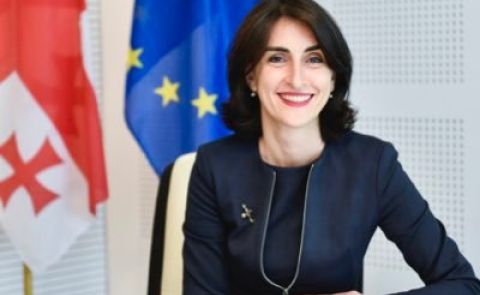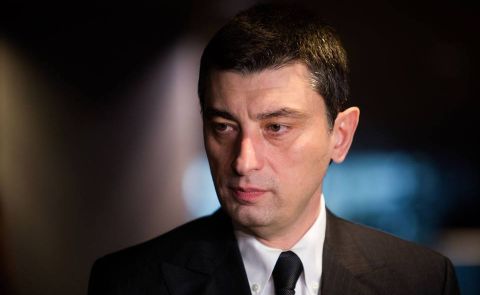
Tensions have risen between Azerbaijan and Armenia

The situation on the Azerbaijani-Armenian border, as well as in the Karabakh, has been tense for several days.
On 16 November, the Azerbaijani Defence Ministry said that two servicemen were wounded as a result of a ceasefire violation on the state border.
Armenia said it has not allowed the Azerbaijani army to advance. However, it lost two military posts and 12 Armenian soldiers have been captured by Azerbaijani Armed Forces. In accordance with the 1997 bilateral agreement, Yerevan appealed to Moscow to protect the country's sovereignty.
On 15 November, Armenia accused Azerbaijan of "entering from the eastern border." Prime Minister Nikol Pashinyan called a meeting of the Security Council to make the above announcement. Azerbaijan did not refute the statement, and in response, Foreign Ministry spokeswoman Leyla Abdullayeva said that "appropriate measures have been taken in response to provocations by Armenia."
Azerbaijan has not acknowledged that any of its soldiers were killed but the Armenian Ministry of Defence reported that they had inflicted “heavy losses of personnel and material” on the other side.
"Since there has been an attack against the sovereign territory of Armenia, under the 1997 treaty we are addressing Russia with a call for protecting the territorial integrity of Armenia. A written request is being prepared," the secretary of Armenia’s Security Council, Armen Grigoryan, said in a televised address.
The Armenian MoD responded that Baku was engaging in a “large-scale disinformation campaign” and that “it is more than obvious that it was Azerbaijan that attacked, attacking the Armenian positions using artillery and armoured vehicles."
The president of the European Union, Charles Michel, reported that he had spoken to both Azerbaijan President Ilham Aliyev and Armenia Prime Minister Nikol Pashinyan and called for an “urgent de-escalation and full ceasefire.”
On the morning of November 15, the Defence Ministry announced that the positions of the Azerbaijani army in the direction of Kalbajar, and even vehicles working on the construction of infrastructure were intensively fired upon.
The "Zangazur Corridor" is currently the major point of contention between the parties. Armenia refuses to provide such a corridor, which is vital for Azerbaijan's political and logistical interests and may connect the country to Nakhchivan and Turkey.
Recent events could damage the fragile relations between the two countries and undermine the "positive progress" made so far, says Armenian political commentator and director of the Regional Research Centre in Yerevan Richard Giragosian.
"In a broader context, this latest tension has nothing to do with the Nagorno-Karabakh conflict or the presence of Russian peacekeepers. On the contrary, the tension is between Armenia and Azerbaijan and creates a new problem with the post-war confrontation," he said.
According to Giragosian, the recent escalation, and occasional clashes "reveal" a breakdown in the link between events at the local level and signs of positive progress at the highest level of diplomacy between the heads of state. The escalation between the parties may be "due to concerns" about the implementation of the expected initial agreement on the restoration of transport links.
The Goris-Kapan road has been at the centre of controversy in recent days. Armenia has said it will set up customs checkpoints on the section of the road passing through Azerbaijan. The Armenian Prime Minister said at a government meeting that the establishment of Azerbaijani posts on the Goris-Kapan road could be avoided, but it would cost "corridor logic."
"The question may arise: would it not be possible to negotiate for the absence of border control over the citizens and cargo of the Republic of Armenia on this road? It would be, but it would cost us the corridor logic, which is also unacceptable," Pashinyan said on 12 November.
According to Elkhan Shahinoglu, head of the Atlas Research Center, an analysis of Armenia's announcement that customs checkpoints will be set up shows that Yerevan has received "certain signals" from Baku.
"According to them, if they had agreed to the Zangazur corridor, Baku would not have made such a decision, that is, it would not have created a customs service at 21 km (the part of the road passing through Azerbaijan), We could allow them to use it as a corridor." Elkhan Shahinoglu says that the Armenian side did not go to "this deal." According to him, this shows that the process between the parties is tense.
Negotiations on the opening of transport communications has created tension inside Armenia. "The government, a symbol of defeat, has made another concession through negotiations. Azerbaijan has taken full control of the Goris-Kapan road," the Hayastan bloc, led by former President Robert Kocharyan, said in a statement on 12 November.
According to political commentator Shahin Jafarli, it seems "surprising" that former President Robert Kocharyan, known for his closeness to Moscow, was at the forefront of protests against Russian-brokered deals. However, in his opinion, Russia is working to address Armenia's concerns about the opening of communications.
"Russia's representative in the trilateral working group, Deputy Prime Minister Alexei Overchuk, said that there is no question of creating corridors that would deprive states of their sovereignty," he said.
Shahin Jafarli also believes that the fact that the protests in Armenia are possible is because the planned summit between the parties has not yet taken place.
See Also


Pashinyan: “We Are Not Seeking to End Russian Troop Presence in Armenia”

Russia Begins 24/7 Radiation Monitoring in Dagestan After Iranian Nuclear Incident

How Do Caucasus States React to Israel-Iran War?

Weekly Brief on Military Situation in the South Caucasus (9–15 June 2025)

